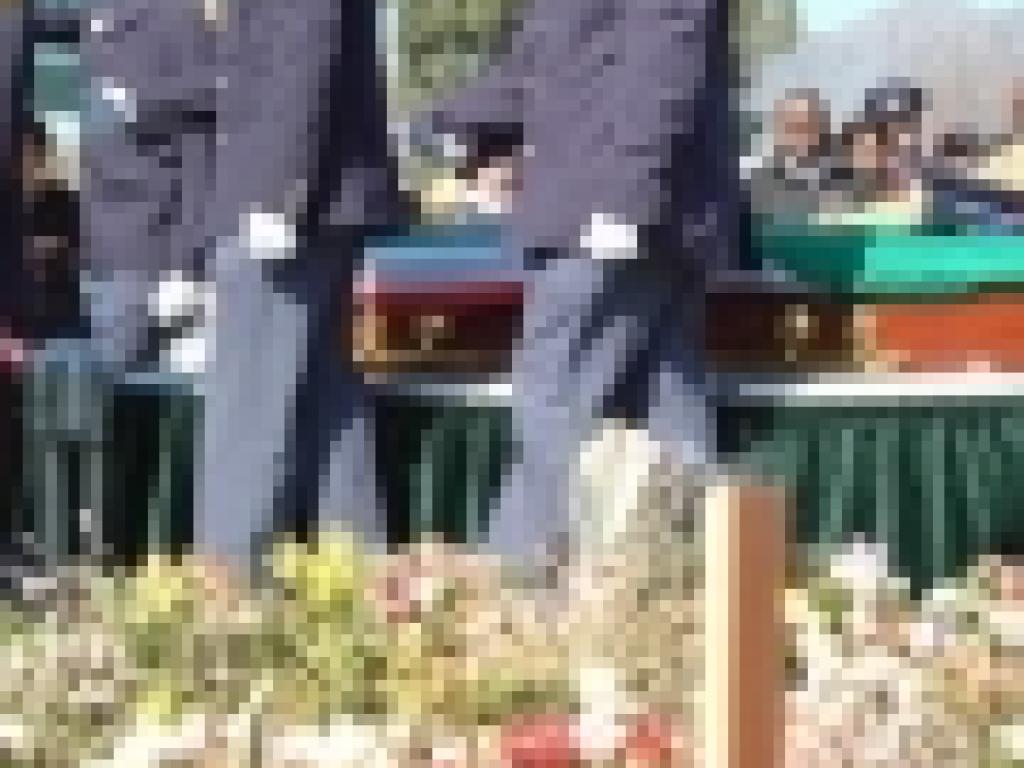Reflections on Police Funerals: What they say about South Africa's Policing Culture

Police funerals and memorial services can reveal as much about the living as they do about the dead.
South African police are murdered at a high rate. Between April 2013 and May 2014 68 members of the South African Police Service (SAPS) died while on duty. How many were murdered is difficult to say as deaths are reported “as a result of a motor vehicle accident or murder”.
Countries differ in the way they report police deaths, making comparisons difficult. But in the US, which has a population six times the size of South Africa, 51 law enforcement officers were murdered in the line of duty in 2014.
South Africa’s high police mortality rate means that funerals and memorial services for members of the SAPS are all too common. Memorial services allow colleagues, family and communities to pay their respects prior to the body being brought to the home place for burial. What happens and what is said at these services can help us understand various aspects of the South African police culture.
Police funerals are a window through which the police subculture can be examined. The rites, rituals and symbols associated with the formality of the funeral procession itself speak to the subculture of danger, isolation and the formality of police work.
Criminologist Peter Manning states that a police funeral is a kind of miniature re-enactment and representation of the drama of policing itself. While police funerals are a formal affair, memorial services are a more informal ritual and have yet to receive the same level of attention with regard to what they can reveal about the police subculture.
An orderly affair
Similar to police funerals, which are governed by national instructions and standing orders, police memorial services are structured events. The ceremonial framework reflects the order normally associated with police procedures. Pamphlets provide an overview stating what politicians and senior ranking officers will speak alongside family members and colleagues of the deceased.
Memorial services also tip the proverbial cap to the formal rituals of a police funeral and also include guards of honour and a strong police presence in dress uniforms. These rituals tend to take centre stage.
However, at memorial services, it is the spaces between these formal structures where the informal culture of the police often emerges.
Music trumps formality
Music and song are an important part of South African culture and identity. Police memorial services are no different in this regard and spontaneous singing from the congregation often happens. The programme is rarely adhered to and individuals randomly sing inbetween assigned speakers.
Owing to such musical intervals, a timed service of an hour often stretches to beyond three hours. While a police-appointed master of ceremonies is there to keep the timing of proceedings, they often end up joining in with the singing.
These customs and cultures of the community overshadow the pre-arranged police plan. In this respect, music and song connects the police with the community that they serve.
More often than not, while the congregation dances to songs, senior police management and politicians remain seated and unmoving. The contrast between seated management and the dancing congregation offers a perspective on the police subculture.
In dancing, the officers in attendance become part of the community. In remaining seated, senior management continue to represent an image of order maintenance. A subculture of formality and order remains with senior ranking officers even when police come together to mourn one of their own.
Political point-scoring
In South Africa, and internationally, attempting to separate politics from police funerals is an impossible task. Politicians regularly use such services as platforms to promote their own agendas.
A common call by politicians at such services is for stronger legislative approaches to deal with police killers. This reinforces an “us” and “them” culture among police. Such political point-scoring overshadows the memorial for the deceased and reinforces the idea that the police are separate from, rather than part of, the community.
Politicians are not the only people to use memorial services for political persuasion. Police union representatives are given an opportunity to address the congregation and also take the microphone to advance their agendas as well.
In the subsequent address, often calling for a return of the death penalty for offenders, police officers become referred to as “comrades” – a term political activists use to refer to one another, especially during the struggle against apartheid.
The police identity becomes distinctly militarised. The talk about the police’s war against crime and criminals reinforces an image of the police as a force as opposed to a service.
Owing to the rate at which South African police are murdered, these services allow one to examine the police subculture from a different perspective. The normal traditions associated with most funerals, such as music and song choice, can have particular importance when analysing the culture associated with police funerals.
Whether these services can be used as an analytical tool with which to examine police subculture in South Africa is yet to fully realised.
